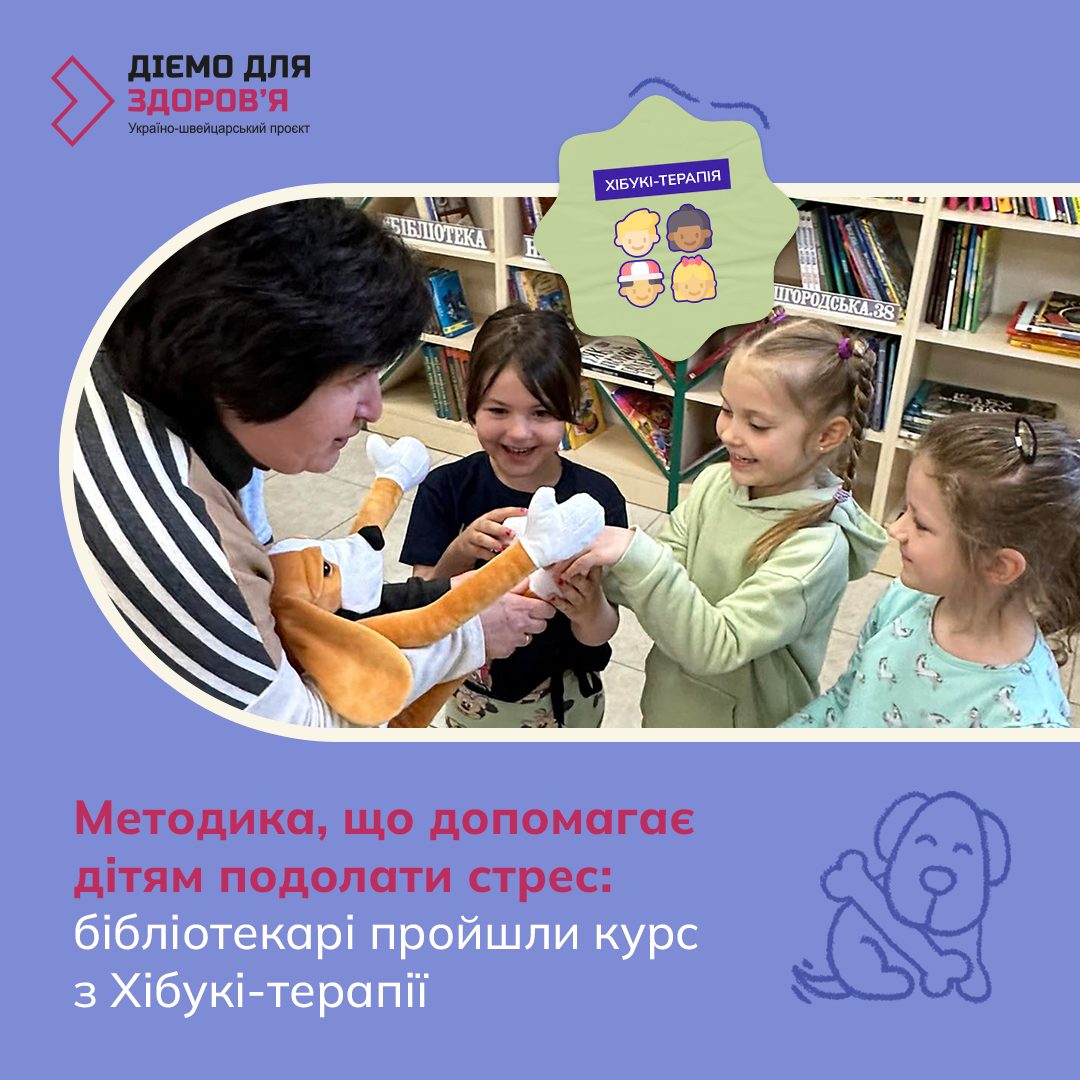
This therapy came to us from Israel, and in Hebrew, Hibuk means hug. That is, Hibuki is a cuddle dogwith long Velcro paws that allow the child to be inseparable from the therapeutic toy for as long asnecessary.
The Hibuki therapy method is based on a solid theoretical and methodological basis and shows highefficiency in dealing with psychological trauma in children.
In 95% of children, after completing a full course (6-10 sessions) of Hibuki therapy, the symptoms ofpsychological trauma were completely eliminated.
Details are on the method's website https://www.hibukitherapy.com and in the Facebook group.Thirty-one specialists joined the course. All course participants received methodological materials.
During 8 sessions, the librarians
- studied the issues of trauma, trauma therapy, hibuki therapy, introduction to the method, approachesto the first meeting with children, and work with parents;
- got acquainted with the experience of working in rehabilitation camps, studied art therapy tools. They also explored the use of the method in working with children with special needs.
Based on the results of the training, some communities have already started using the method: in the Pokrovsk community, this method will be implemented as part of a cultural and sports event. And theLibrary on Priorka in Kyiv has already held its first Hibuki meeting with children.
The opportunity to study directly with Dafna Sharon Maksimov, a psychologist, international specialist in trauma therapy for children and adolescents, and the author of the Hibuki therapy method in Ukraine, was provided as part of the Healthy Libraries project.